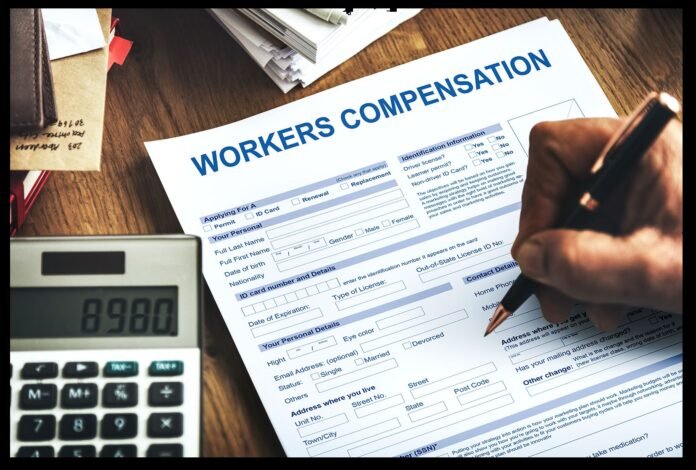Being injured at work is a risk in any industry — construction, hospitality, healthcare or office work. If injured, you could be out of work and out of pay for a considerable amount of time. Therefore, knowing your rights and how to claim proper compensation ahead of time is important. Laws are in place for this very reason. We want to go through the basics to navigate the process if you are unfortunate enough to face work-related injuries.
Table of Contents
Workers Compensation: What Is It?
Workers’ compensation is a no-fault system that helps workers when injured. As a no-fault system, you don’t have to prove your employer was negligent to receive compensation. The insurance covers medical expenses, lost wages while you recover, and rehabilitation. Besides Texas, every state has laws requiring businesses to adhere to worker compensation laws. If you’re in Texas, you can claim impairment income compensation, which covers up to 70% of lost wages.
Know Your Rights: What You’re Entitled to after an Accident
If you get hurt while working, knowing your rights under worker’s compensation laws is important. Understanding these rights can help you secure the support you need during recovery.
1. Right to File a Claim
You can file a worker’s compensation claim if you suffer a work-related injury. This is the first step to receiving compensation for lost wages. Ensure you report your injury to your employer promptly, as states impose strict deadlines for filing claims, typically ranging from 30 days to a year.
2. Right to Medical Treatment
You will receive medical treatment once you’ve reported the injury, and worker’s compensation should cover the costs. This includes doctor visits, hospital care, medications, and rehabilitation. While your employer’s insurance might require you to visit a specific doctor, in many cases, you have the option to seek a second opinion.
3. Right to Wage Replacement
If your injury keeps you from working, you have the right to wage replacement benefits. These benefits generally cover about two-thirds of your regular wages. Depending on the severity and length of your injury, you may qualify for temporary or permanent disability benefits.
4. Right to Return to Work
You can return to work once you’ve recovered and are medically cleared. If your injury prevents you from returning to your previous position, your employer may offer you a modified or lighter-duty role. If you cannot return to work, you may qualify for permanent disability benefits.
5. Right to Appeal
You can appeal the decision if your worker’s compensation claim is denied. The appeal process varies by state but usually involves providing more documentation or attending a hearing to make your case. Seeking advice from an attorney specializing in worker’s compensation may help if your claim is denied.
6. Right to Legal Representation
You can hire a worker’s compensation attorney at any stage. An attorney can help ensure you receive all the benefits you’re entitled to and represent you in any disputes or appeals.
Understanding these rights, you can better navigate the worker’s compensation process and protect your health and financial security after a workplace injury.
Be Prepared for Pushback
Just like you have rights, so does your employer. It may be that your workplace has a system in place to check your claim thoroughly. This protects them from possible fraud and illegitimate claims. Sadly, it could also be an illegal way to avoid monetary loss from work-related accidents. In this process, they may do the following.
Review the Claim Thoroughly
Your employer could start by reviewing the details of the claim. They might look at the injury, how it occurred, and whether it qualifies as work-related. This ensures the claim fits worker’s compensation criteria, as non-work injuries are sometimes mistakenly filed.
Conduct an Investigation
They may investigate by gathering witness statements, accident reports, or surveillance footage to spot any inconsistencies. If the claim seems questionable, this is when they’d collect evidence to support a denial.
Consult Legal and Insurance Experts
Your employer might consult a worker’s compensation attorney or insurance expert to understand the laws better and determine if the claim is legitimate. Legal guidance can help them make informed decisions.
Read More: What to Do if an Employee Gets Injured at Work
What You Should Do If the Claim Is Escalated
If your employer is reviewing your worker’s compensation claim, investigating it, or consulting legal experts, here’s what you can do to protect your rights and ensure your claim is handled fairly:
1. Provide Accurate Information
Make sure all the details you’ve provided about your injury are accurate. This includes how and when the injury happened and the medical treatment you’ve received.
Keep records of your doctor visits, medications, and any recommendations for time off or rehabilitation.
2. Cooperate with the Investigation
If your employer is investigating your claim, cooperate fully. Provide any documents or witness contacts they may request. It’s also important to avoid behaviours that could make a claim appear suspicious, like returning to work too soon or exaggerating symptoms.
3. Seek Legal Advice
If your employer is consulting with legal experts, you may want to do the same. A worker’s compensation attorney can help you understand your rights, ensure your claim is handled properly, and assist you in navigating any disputes.
4. Request an Independent Medical Exam
If your employer requests an Independent Medical Examination (IME), it’s in your best interests to attend. However, if the IME report disputes your claim, you can seek a second opinion or request a different medical provider.
5. Keep Records and Documentation
Keep all documentation of your injury, including medical records, communication with your employer, and any paperwork related to your claim. Organized records can be crucial if your claim is questioned or if you need to appeal a decision.
6. Prepare for a Possible Dispute
If your claim is denied or questioned, be ready to file an appeal. Gather all supporting evidence, including medical reports and witness statements. Having a strong case prepared can make a significant difference if your claim ends up in a tribunal or court.
Don’t Despair, Be Prepared!
Worker’s compensation laws exist to protect you if you’re injured at work, ensuring you get the medical care and financial support you need while recovering. Knowing your rights helps you take the right steps and avoid unnecessary delays or issues with your claim. If you’ve been hurt on the job, don’t hesitate to seek legal advice to ensure you get the benefits you’re entitled to.
Apart from this, if you are interested to know more about Reasons why you might need a radiologist services then visit our Health category.























